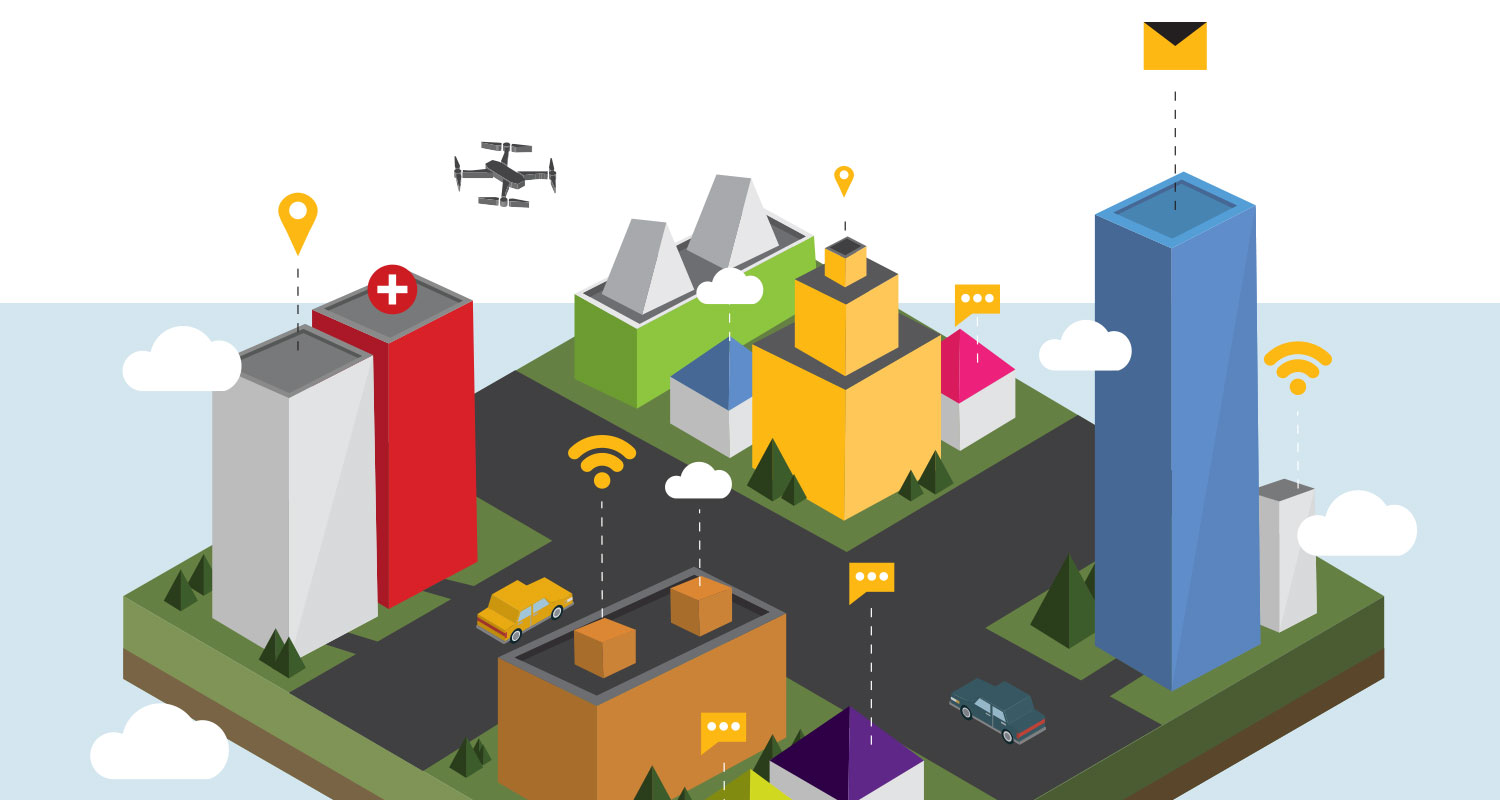Population and urban resource records are found on clay tablets, papyrus, medieval memoranda — and file cabinets in city hall. For centuries, these data have been tallied and entered by hand. What if automation could overhaul this process?
That’s the idea behind so-called smart cities worldwide. In this model, data-gathering sensors are placed in traffic, water, sewers, energy systems and other infrastructure. Real-time data are aggregated and analyzed, and results are translated into actionable information for citizens and policy makers.
Here are some of the ways VCU Engineering is helping create cities that are both smart — and intelligent.
From data to decision: VCAST
VCU Engineering established the VCU Center for Analytics and Smart Technologies (VCAST) in late 2018 to bring academia, industry and the public sector together on focused projects to improve the data and the devices that drive smart cities. Sherif Abdelwahed, Ph.D., professor of computer engineering and director of VCAST, foresees a steady expansion of VCAST projects and partners, given VCU Engineering’s research expertise in traffic engineering, health care electronics and cybersecurity.
Greening the food deserts
The trend toward fresh, local food has inspired healthier lifestyles. But many families with limited resources are in neighborhoods whose isolated markets and corner stores offer a diet high in salt, fat and sugar — and low in nutrients. With data analytics from VCAST, engineering researchers are identifying Virginia’s current (and future) food deserts and partnering with experts in life sciences, social work, government and public policy to connect those communities with local sources of affordable, high-quality food.
Smarter data security
For hackers, smart cities are treasure troves of data for profit and mayhem. Milos Manic, Ph.D., professor of computer science and director of VCU’s Cybersecurity Center, has developed an award-winning power grid protection system that improves its own effectiveness as it watches would-be hackers. Carl Elks, Ph.D., assistant professor of electrical engineering, is developing novel architectures that address the security gap between embedded computers and cyber-physical systems such as nuclear energy systems, smart cities, manufacturing and transportation.
No ordinary dollhouse
The front of the large, colorful plastic house in VCU’s Smart Technologies Lab looks like a cool toy. Turn it around, and a network of wires and circuit boards tells the full story. This smart home testbed lets researchers design innovations that will help full-size buildings monitor (and reduce) their own operating costs and provide data cities can use to allocate utilities and other resources more proactively. These homes can also be designed to monitor occupants’ health and safety, making it easier for people to age in place or leave the hospital more quickly after surgery.
Self-driving cars and smart streets
Vertically Integrated Projects, which unite students and faculty in long-term, large-scale research, are taking it to the streets. One team is designing and building a 1/10-scale Formula race car to better understand the nexus of machine learning, complex algorithms and sensors for self-driving cars. Another is developing a smart traffic testbed that uses sensors and analytics to give drivers and city planners real-time data on traffic flow, parking and accidents.
Ambulance drones
Two Capstone Design teams have designed drones that can autonomously deliver lifesaving injections or devices to people having medical emergencies. These drones can receive requests, travel without the slowdowns of street traffic and provide medical assistance with real-time guidance from medical professionals. The devices are designed to keep patients alive until first responders arrive on the scene.
